Technology-enabled Education - NEP's Vision
The National Education Policy (NEP) 2020 aims to implement substantial changes in the Indian educational system that will completely change how Indian students are taught and educated.
The policy acknowledges that considerable changes must be made to the current educational system to fulfill the demands of the 21st century.
Key elements of NEP’s technology-enabled education:
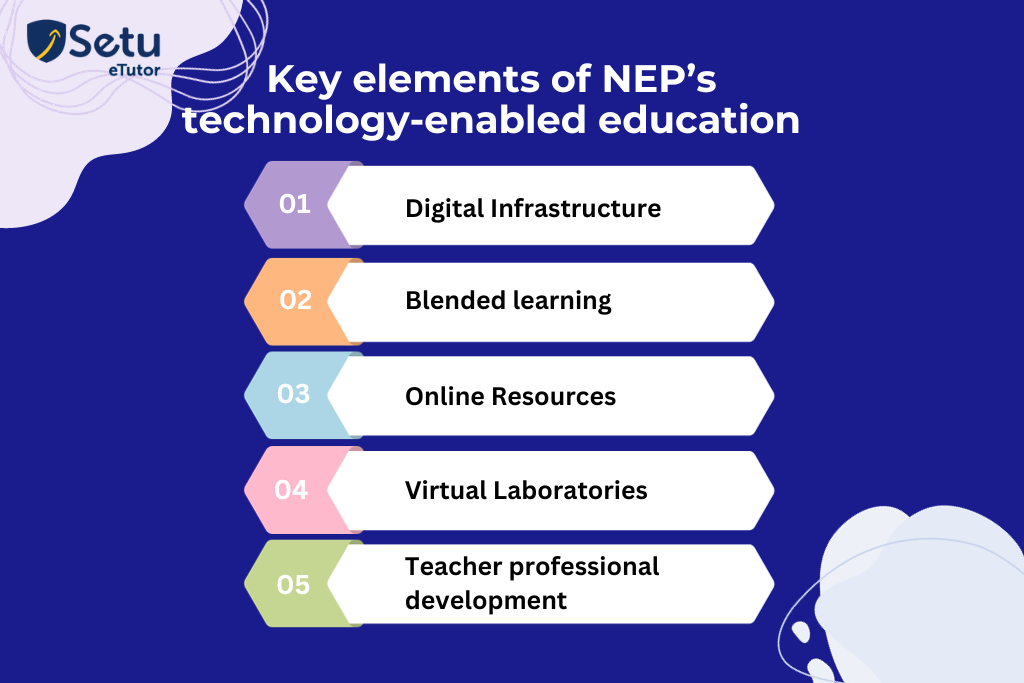
The policy recognizes the transformative power of technology in education and aims to integrate it into all aspects of the teaching-learning process.
Digital Infrastructure: The policy aims to give the Indian schools and institutions higher learning connectivity and digital infrastructure. High-speed internet access, digital gadgets like laptops or tablets, and digital content are all included in this.
Blended learning: Online and offline methods of learning are combined in blended learning, which the NEP emphasizes. It seeks to give students a flexible and personalized learning experience.
Online Resources: The National Educational Policy (NEP) encourages the development and application of open educational resources (OERs), including interactive simulations, films, and e-books. Students and teachers may utilize these resources anytime and from any location.
Virtual Laboratories: According to the policy, creating online labs where students can carry out experiments and study scientific principles will be possible. The limits of physical laboratories will be overcome, especially in remote locations.
Teacher professional development: The NEP acknowledges the significance of teacher professional development in facilitating technology-enabled education. It strives to give teachers the assistance and training they need to successfully use technology in the classroom.
NEP's Vision in Acquiring technology-enabled education:
The New NEP’s Vision is to provide:
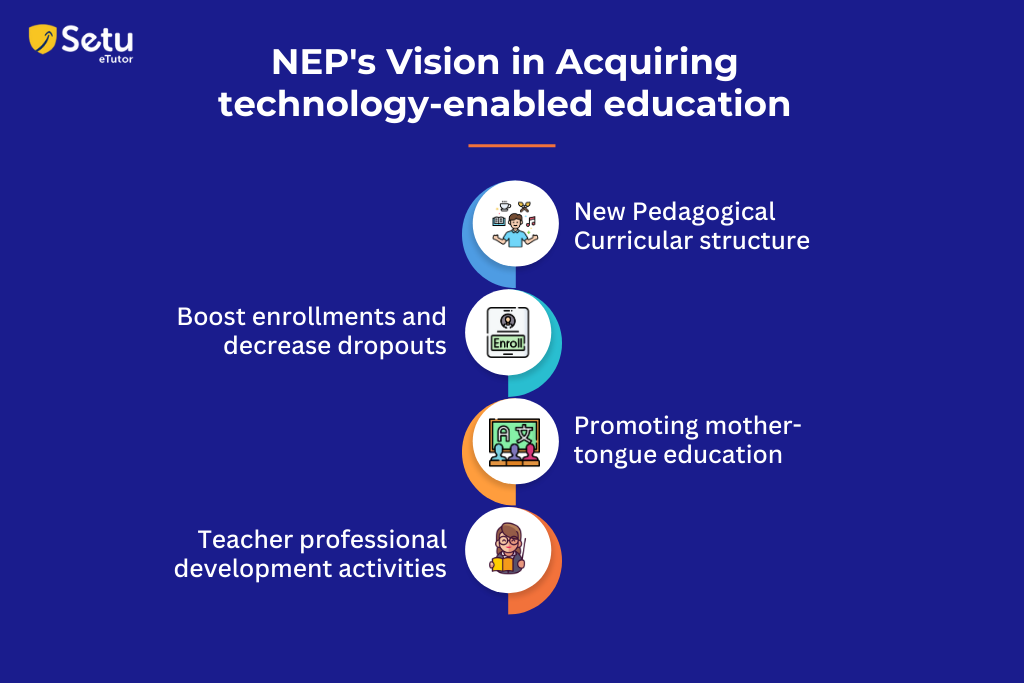
New Pedagogical Curricular structure: The new NEP recommends a 5+3+3+4 organizational structure, in which the first five years will be devoted to the foundation stage, then three years will be spent on preparatory education, three years on middle education, four years will be spent on secondary education.
Boost enrollments and decrease dropouts: The policy also aims to enhance access and equity in education, especially for disadvantaged groups such as women, rural communities, and the economically weaker sections.
It recognizes the importance of early childhood care and education and aims to provide foundational literacy and numeracy to all students by Grade 3. The policy also emphasizes technology and practical learning and offers numerous entry and departure points to boost enrolments and decrease dropout rates.
Promoting mother-tongue education: The National Education Policy (NEP) 2020 highlights the value of educating kids in their native or regional tongues at least until the fifth grade and ideally until the eighth grade. The policy acknowledges that teaching in the mother tongue can enhance learning outcomes and cognitive development and that children learn better in a language they are comfortable with.
The NEP strives to provide students with 21st-century competencies or skills crucial for success in the contemporary world, in addition to fostering mother-tongue education.
Teacher professional development activities: The National Education Policy (NEP) 2020 proposes to split teacher preparation into two parts – a four-year integrated Bachelor’s degree in Education (B.Ed.) program and a two-year Master’s degree in Education (M.Ed.) program. These programs will equip teachers with a strong foundation in subject knowledge, pedagogy, and practical training.
To raise the standard of teaching in India and give children an excellent education, NEP also wants to construct a National Curriculum Framework for Teacher Education (NCFTE) and promote continual professional growth.
How does SETU help in accomplishing the NEP's Vision?
SETU, an AI-assisted platform, significantly contributes to realizing the goals of the NEP 2020. Through technology-enabled learning, SETU contributes to developing a dynamic and forward-thinking educational ecosystem in India that offers top-notch instruction to all students.
- The SETU platform supports collaboration between students and teachers by facilitating the management and delivery of educational content, tracking student progress, and providing feedback.
- SETU trains through a gamification model that improves student engagement and makes learning more enjoyable and participatory.
- Each student receives a personalized learning experience thanks to our platform.
- Our platform identifies learning gaps in students’ and offers tailored training to help them advance.
Conclusion:
Despite the reality that the policy is ground-breaking and forward-thinking, it acknowledges technology’s crucial role in advancing learning and teaching.
It is crucial to establish a coordinated plan of action for promoting technical expertise to support productive involvement with technology while maintaining efficient privacy and data protection security.
The policy acknowledges that information will become more digital in education. This level of mindfulness represents a significant accomplishment for India’s historically rigid educational system. In this regard, SETU is a framework designed to assist teachers and students in the teaching and learning process.




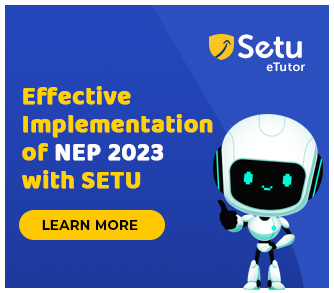
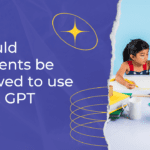
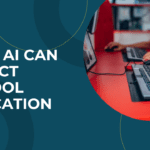
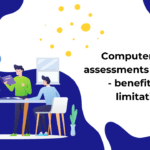
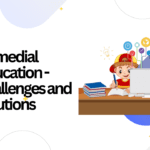
Leave a reply